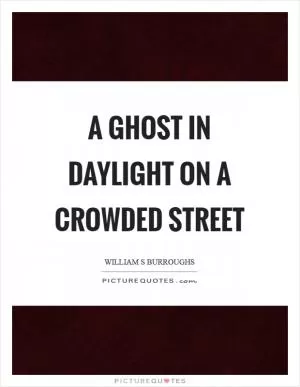The American uppermiddle-class citizen is a composite of negatives. He is largely delineated by what he is not

The American uppermiddle-class citizen is a composite of negatives. He is largely delineated by what he is not
William S. Burroughs, a prominent figure in the Beat Generation and counterculture movement of the 1950s and 1960s, often critiqued the American upper-middle-class citizen in his works. In his writing, Burroughs portrayed this demographic as a composite of negatives, defined more by what they are not than by any positive attributes.Burroughs saw the American upper-middle-class citizen as a product of conformity, materialism, and a lack of individuality. He believed that this demographic was driven by a desire to fit in and maintain a certain social status, rather than pursuing their own unique passions and interests. In his novel "Naked Lunch," Burroughs depicts a society where individuals are controlled by their desires for wealth, power, and social acceptance, leading to a sense of emptiness and alienation.
One of the key themes in Burroughs' work is the idea of the "control society," where individuals are manipulated and controlled by external forces such as government, corporations, and societal norms. The American upper-middle-class citizen, in Burroughs' view, is complicit in this system of control, willingly sacrificing their individuality and freedom in exchange for a sense of security and comfort.
Burroughs also critiqued the American upper-middle-class citizen for their lack of empathy and compassion towards those less fortunate. He believed that this demographic was often indifferent to the struggles of others, choosing to prioritize their own needs and desires above all else. In his novel "Junky," Burroughs explores the destructive nature of addiction and the ways in which it can dehumanize individuals, turning them into selfish and self-absorbed beings.
Overall, Burroughs' portrayal of the American upper-middle-class citizen as a composite of negatives serves as a critique of the values and priorities of mainstream American society. Through his writing, Burroughs challenges readers to question the status quo and consider the ways in which they may be complicit in perpetuating systems of control and oppression.












 Friendship Quotes
Friendship Quotes Love Quotes
Love Quotes Life Quotes
Life Quotes Funny Quotes
Funny Quotes Motivational Quotes
Motivational Quotes Inspirational Quotes
Inspirational Quotes